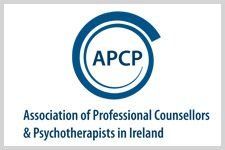Anxiety Disorders
- Generalized anxiety disorder (GAD): feeling restless, wound-up, or on-edge, being easily fatigued, having difficulty concentrating, Being irritable, Having headaches, muscle aches, stomach-aches, or unexplained pains, difficulty controlling feelings of worry, having sleep problems, such as difficulty falling or staying asleep
- Social anxiety: persistent fear of being judged by others. For people with social anxiety disorder, the fear of social situations may feel so intense that it seems beyond their control. For some people, this fear may get in the way of going to work, attending school, or doing everyday things. People with social anxiety disorder may experience:
- Blushing, sweating, or trembling
- Pounding or racing heart
- Stomach-aches
- Rigid body posture or speaking with an overly soft voice
- Difficulty making eye contact or being around people they don’t know
- Feelings of self-consciousness or fear that people will judge them negatively
- Panic disorder: People with panic disorder have frequent and unexpected panic attacks. Panic attacks are sudden periods of intense fear, discomfort, or sense of losing control even when there is no clear danger or trigger. Not everyone who experiences a panic attack will develop panic disorder. During a panic attack, a person may experience:
- Pounding or racing heart
- Sweating
- Trembling or tingling
- Chest pain
- Feelings of impending doom
- Feelings of being out of control
People with panic disorder often worry about when the next attack will happen and actively try to prevent future attacks by avoiding places, situations, or behaviours they associate with panic attacks. Panic attacks can occur as frequently as several times a day or as rarely as a few times a year.
NIMH » Anxiety Disorders (nih.gov)
Online Morrissey, Counsellor, Ballylanders, V35 | Psychology Today
What is depression
Depression can also involve other changes in mood or behaviour that include:
- Increased anger or irritability
- Feeling restless or on edge, persistent sad, anxious, or “empty” mood
- Feelings of irritability, frustration, or restlessness
- Feelings of guilt, worthlessness, or helplessness
- Loss of interest ,decreased energy, fatigue, or feeling slowed down
- Difficulty concentrating, remembering, or making decisions, sleeping, waking early in the morning, or oversleeping
- Appetite or unplanned weight changes
- Pains, headaches
- Thoughts of death or suicide or suicide attempts
Not everyone who is depressed has all symptoms NIMH » Depression (nih.gov), Clinical depression - Symptoms - HSE.ie
Bereavement, grief, loss
There are many types of loss, loss of a job, end of a relationship, the loss of health.
The death of a loved one can be the biggest loss in our lives.
Bereavement and loss affect people in different ways. But most people experience grief in some way. Grief includes the deep sadness after a death or loss. It is a natural process as we learn how to live without the person who has died, sometimes we need help
Coping with grief after bereavement or loss - HSE.ie
Things to help your mental health
- Physical activity
- Connecting with others
- Learning something new
- Mindfulness
Interested in our services? We’re here to help!
We want to know your needs exactly so that we can provide the perfect solution. Let us know what you want and we’ll do our best to help.
About
Breda Morrissey BA (Hons) APCP
Online Cognitive Behavioural Therapy (CBT), Counselling and Psychotherapy, and Mindfulness.
Cork, Limerick, Tipperary
Ireland
Breda Morrissey
Links
